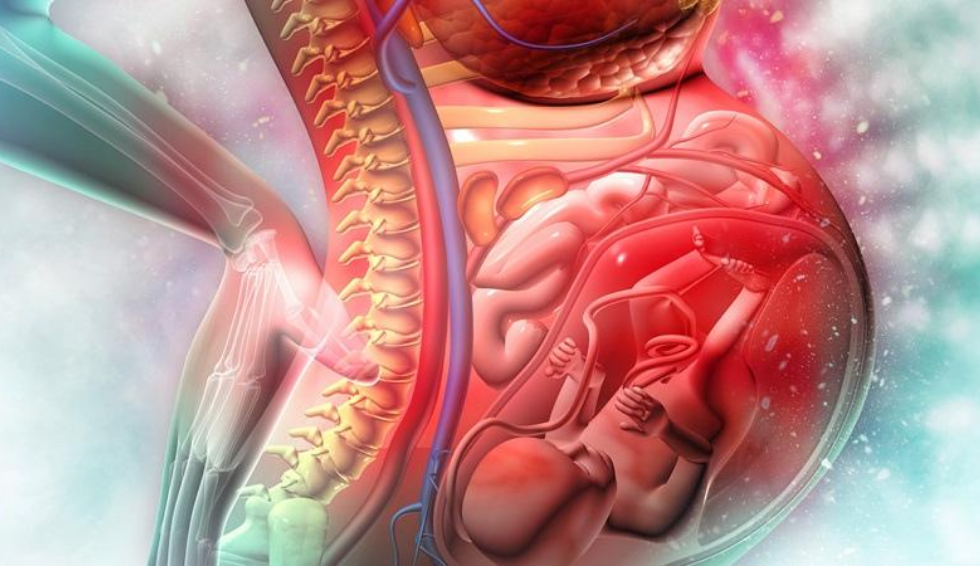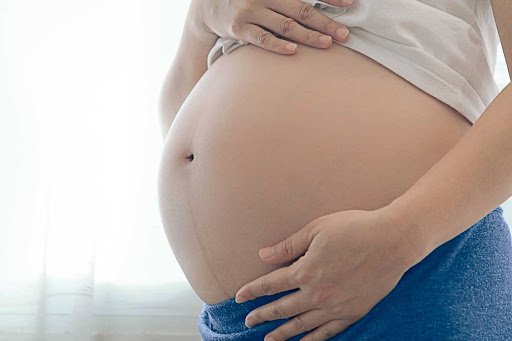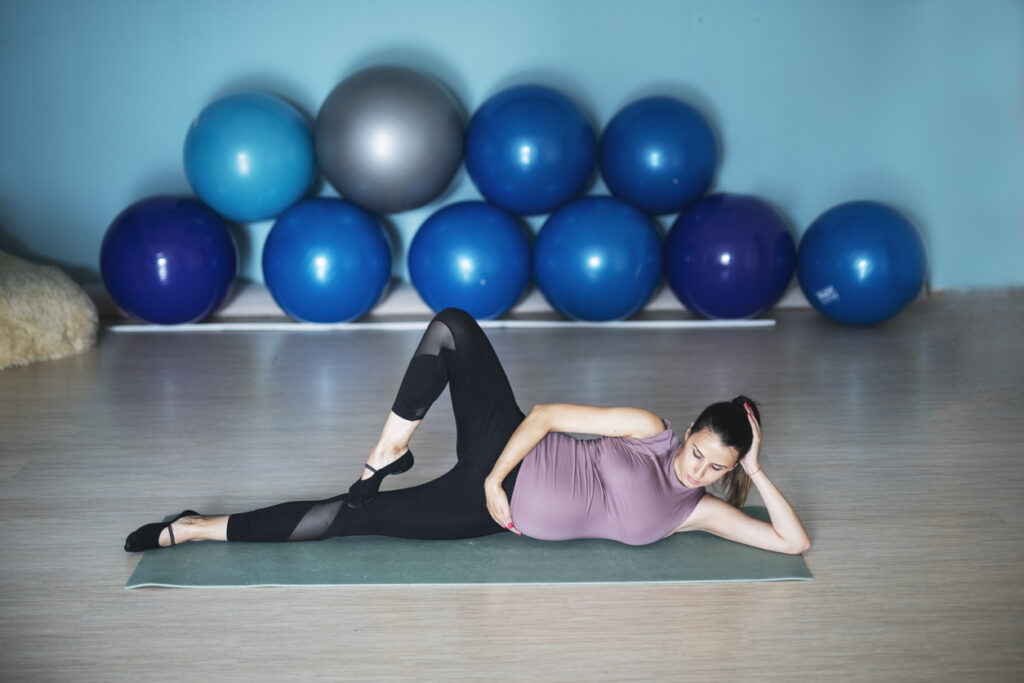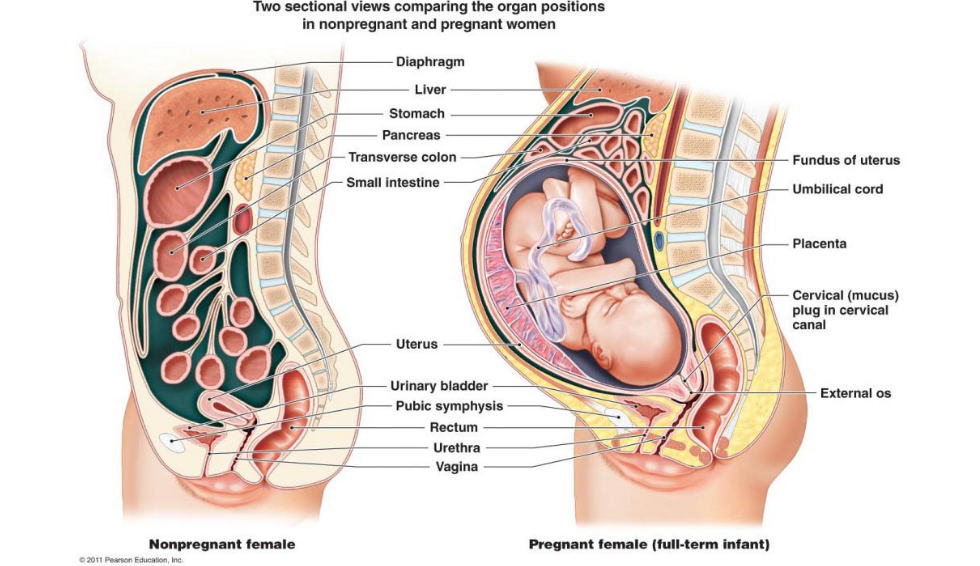Relaxin is a hormone that is produced by women during pregnancy. It helps with the stretching of ligaments to allow for the baby to pass through the birth canal. During this time, some women report joint pain and stiffness in their knees, hips and ankles. This joint pain can be severe enough to limit mobility and affect daily activities such as walking or getting up from a seated position.
Relaxin Hormone And Joint Pain
The reason why women experience joint pain while pregnant is because of relaxin hormone. The relaxin hormone causes ligaments in the body to loosen up so that they can stretch and accommodate the growing baby inside of the uterus. The looseness in these ligaments can cause stress on other areas of the body such as the pelvis, spine, hips and knees which can lead to back pain or joint discomfort.
Relaxin is a hormone that is produced by the body during pregnancy. It’s important during childbirth, as it helps loosen the ligaments in the pelvis to make delivery easier.
In addition to its role in childbirth, relaxin plays an important role in muscle relaxation and joint flexibility. It’s also thought to help with weight loss by increasing the amount of insulin released from the pancreas and suppressing hunger hormones.
The hormone relaxin is naturally produced by women during pregnancy, but it can also be taken as a supplement or injected directly into a joint to relieve pain and stiffness.
Relaxin is a hormone that plays an important role in pregnancy and birth by loosening ligaments so they can stretch. During this time, relaxin levels are highest in pregnant women and then gradually decline over time after giving birth. Relaxin is also found in small amounts in males and nonpregnant females who have high levels of estrogen.
Relaxin is a hormone that is released by the corpus luteum during pregnancy. It causes the joints to become more flexible and the ligaments to relax so that the pelvis can expand during childbirth.
The hormone relaxin is also present in women who are not pregnant, although at much lower levels than during pregnancy. The hormone has been linked to joint pain and other symptoms in women who do not have any other medical problems. Relaxin has also been linked to other health problems such as heart disease, stroke and diabetes.
What Is Relaxin?
Relaxin is a hormone that is produced by the corpus luteum of the ovary during pregnancy and early stages of labor. It helps loosen the ligaments in your pelvis so that your baby can pass through them during birth. It also helps loosen your joints so that you can move around more easily during pregnancy.
The level of relaxin rises significantly after conception but decreases once labor begins or shortly thereafter. If you have too much excess relaxin in your body, it can cause joint pain and other symptoms like headaches, backaches, blurred vision or fatigue.
Relaxin is a hormone that is produced during pregnancy. It has many functions, including the following:
Relaxing of the uterus and softening of the pelvic tissues to prepare for delivery.
Softening of the pubic symphysis (the cartilaginous joint at the front of your pelvis) to allow your baby’s head to pass through during birth.
Increasing flexibility in tendons, ligaments and joints.
Relaxin may also play a role in reducing inflammation after injury or surgery, although the evidence for this is still unclear.
How will the hormone relaxin affect the joints?

Relaxin is a hormone that is produced by the corpus luteum in pregnancy. It helps the pelvic ligaments relax and the joints in the pelvis become more mobile to prepare for birth.
The hormone relaxin is also present in non-pregnant women, but its function there is not yet fully understood. The hormone may have a role in regulating bone remodeling or in healing of fractures. It may also be involved in increasing blood flow during menstruation and pregnancy.
The hormone relaxin is a polypeptide that is produced by the corpus luteum of the ovary in pregnancy, but can also be found in other tissues, including the lungs, liver and pancreas. In humans and some other animals, relaxin plays a role during pregnancy by facilitating the changes that occur in the body as it accommodates a developing fetus.
The hormone relaxin affects various body systems during pregnancy, including those related to digestion and sexual activity. It also helps to prevent preterm birth by relaxing the pelvic ligaments, which allow for easier dilation of the cervix and delivery of the baby.
The hormone relaxin does not cause joint pain in healthy people but may cause joint pain if you have rheumatoid arthritis or if you are recovering from surgery on your joints.
Relaxin is a hormone that is released by the ovaries during pregnancy. It allows for the softening of pelvic ligaments and tendons to help make room for the baby.
During pregnancy, relaxin is also responsible for causing changes in other ligaments and tendons, including those that connect bones to each other. Relaxin does this by causing collagen fibers within these structures to break down. This allows for greater mobility of the joints, especially at the hip and knee, which are important areas during labor and delivery.
When you’re pregnant, your body produces the hormone relaxin. Relaxin does a lot of things, but one of its main jobs is to help your body prepare for birth by softening your ligaments (the tough bands of tissue that connect bones) so that they can stretch and make room for the baby’s head.
This can cause some problems for your joints. Your joints are surrounded by cartilage, which keeps them from rubbing together and causing pain. If you have too much relaxin in your body, then the cartilage may soften too much and begin to wear away. This can cause joint pain and swelling.
If you get too much relaxin in your system before delivery, it could also loosen up your pelvic joints so much that it’s hard for them to lock into place again after delivery!
Does relaxin make your joints hurt?
Do you have joint pain? If so, it might be due to the hormone relaxin. The hormone relaxin is released during pregnancy to prepare the body for labor. Relaxin helps soften the joints and pelvic ligaments in preparation for birth. The effects of this hormone can last up to six months after giving birth.
The most common symptoms that women notice during pregnancy are back pain and joint pain. These symptoms can occur in any joint, but are most common in the knees and ankles.
Relaxin is a hormone that is released by the body when a woman becomes pregnant. It helps loosen ligaments and tendons so that the pelvis can expand during childbirth.
The hormones progesterone and estrogen also play a role in making pregnancy more comfortable. This “relaxin shield” helps protect your joints from overstretching during pregnancy, making your hips and back less likely to develop aches and pains.
Once you give birth, the relaxin release stops and your body returns to its pre-pregnancy state — but not completely. There are some long-term effects of this hormone release on women’s bodies after pregnancy, which may include joint pain or stiffness for up to six months after delivery.
Relaxin is a hormone released by the female body during pregnancy. It’s believed to help with stretching of the pelvis, joints and ligaments in preparation for childbirth.
However, relaxin isn’t just a pregnancy hormone. It’s also released in response to emotional stress, which can affect women who are not pregnant or breastfeeding.
Relaxin can cause joint pain and swelling, especially in the knees and ankles. The degree of joint pain varies from person to person and may be reduced by taking nonsteroidal anti-inflammatory drugs (NSAIDs), such as ibuprofen or naproxen (Aleve).
When should you see a doctor?
If your joints remain painful for more than two weeks after delivery, it may be time to seek medical care. You may have developed arthritis or another condition that requires treatment by a specialist such as an orthopedist or rheumatologist.
Relaxin is a hormone that relaxes the ligaments in your body. Because it’s a hormone, it can affect more than just your joints. It can also affect your bones, skin and blood vessels.
Relaxin starts to flow into your bloodstream about 16 weeks into your pregnancy and remains elevated through the third trimester. The rise in relaxin levels is responsible for loosening up your joints and making them more flexible — a good thing when you’re expecting a baby! The increased flexibility helps make room for the fetus as it grows in utero, which means less pain for you.
Relaxin also causes your ligaments to become more elastic. This means that if you bend over or try to lift something heavy, you’ll feel more flexible than usual and may be able to do things that you couldn’t do before without experiencing joint pain afterward.
But relaxin doesn’t just affect joints — it also affects other parts of your body, including:
What joints does relaxin affect?

The joints that relaxin affects include the:
knee
ankle
hip
elbow
Relaxin is a hormone that is released during pregnancy and helps to relax the ligaments in the pelvic region. This can lead to increased mobility and flexibility in the joints, which can be very beneficial during labor and delivery.
The most common joints affected by relaxin are:
Knee – Relaxin loosens the ligaments around your knee, making it easier for your body to bend at this joint.
Pelvis – Relaxin loosens the ligaments around your pelvis, allowing them to stretch during childbirth.
Lower back – Relaxin also helps with stretching of your lower back muscles, leading to greater flexibility.
Relaxin is a hormone that has the opposite effect of progesterone, which is the main pregnancy hormone. It is released in larger amounts during pregnancy and helps prepare the body for childbirth.
Relaxin’s primary function is to soften and loosen the connective tissues in the pelvis and pelvic floor, which allows your baby to make his or her way through the birth canal more easily.
During pregnancy, relaxin also loosens tendons and ligaments throughout your entire body, including those that support joints such as knees, shoulders and elbows. This can cause joint pain that may intensify as you get closer to your due date.
The good news is that when you give birth, relaxin levels decline significantly and return to normal within about two weeks after delivery.
relaxin is a hormone that is released by the corpus luteum and placenta during pregnancy. It helps to relax the ligaments of the pelvic girdle and other joints, so that the pelvis can expand during birth.
relaxin also has other functions:
it decreases uterine contractility and stimulates epithelial cell proliferation/hypertrophy of the uterus, cervix and vagina (i.e., increases mucus secretion).
it increases vascular permeability allowing more blood to flow into these tissues.
it helps maintain pregnancy by inhibiting adenylyl cyclase activity in syncytiotrophoblasts (think breast milk production).
relaxin levels increase during labor with peak levels found between 1 – 4 hours after delivery.
How long does relaxin pain last?
Relaxin is a hormone that is produced by the body in pregnancy. It is responsible for softening the pelvic ligaments during pregnancy, making room for the baby to pass through the birth canal.
Once labor begins, relaxin levels increase even more, which helps to soften the cervix and assist with dilation of the birth canal.
Typically, after childbirth, relaxin levels will decrease and symptoms of pain will subside. However, some women may continue to experience issues such as pain in their lower back or pelvis due to weakened or stretched ligaments.
The length of time that relaxin “stays” in your body varies from woman to woman – some experience symptoms for several months following childbirth while others report no issues at all.
Relaxin is a hormone that women produce during pregnancy. It helps loosen the pelvic ligaments to help the baby pass through the birth canal. Relaxin can cause many symptoms in the first trimester of pregnancy, including:
Lower back pain
Pelvic pain
Diarrhea and constipation
Nausea and vomiting
Increased urination and thirst
Heartburn
The pain and swelling can last anywhere from two to six weeks, but it’s better to be on the conservative side.
If you’re having difficulty walking, take it easy and rest as much as possible. Make sure you’re getting plenty of fluids to avoid dehydration.
If your joints are swollen and painful, apply heat to help relieve the swelling. Alternately, ice may be useful in relieving pain.
The discomfort should gradually subside over the next few weeks. If you experience joint pain that lasts longer than two months after the birth of your baby, see your doctor for an evaluation.
The good news is that the relaxin hormone, which causes some of the symptoms of pregnancy, goes away after you give birth. The bad news? It may take a while before your body returns to normal.
“Relaxin levels peak at around 28 weeks, and then they start to decline,” says OB-GYN and author Dr. Jennifer Ashton. “But it can take up to two months for them to be completely gone.”
So what does that mean for you? Well, during those two months your body will still be recovering from pregnancy and adjusting to life with a newborn — which can make things even more challenging than usual. Here’s what to expect from your body after giving birth:
Does relaxin make your hips hurt?

Relaxin is a hormone that relaxes connective tissue during pregnancy. It helps to loosen the pelvic joints and ligaments so that the baby can pass through the birth canal.
Relaxin is released around week 10 of pregnancy. It peaks around 20 weeks, then decreases and disappears after delivery.
It’s normal to experience some discomfort in the hips while you’re pregnant, but it’s not supposed to be severe pain or constant pain. If your hips hurt and it’s not going away, see your doctor.
Relaxin is a hormone that is released during pregnancy. It’s intended to help the pelvis expand to make room for the baby. But relaxin can also cause some other side effects, including joint pain.
The joints affected by relaxin are usually the large ones in the hips, knees and ankles. The most common symptom is hip pain that gets worse when you stand up from a seated position or walk up stairs.
Relaxin doesn’t cause other kinds of joint pain, like osteoarthritis. It’s also not related to rheumatoid arthritis, which is an autoimmune disease that causes inflammation in your joints.
Relaxin is a hormone that is produced by the body to soften the pelvic ligaments and joints in preparation for childbirth. It is produced between weeks 36 and 38 of pregnancy, and it peaks at about 37 weeks. The hormone relaxin softens the tissue in your pelvis to help make room for your baby’s head during delivery.
The hormone relaxin can cause discomfort in your hips and back as well as pain when walking or standing. This is because relaxin softens all the connective tissues in your body, including those supporting the joints of your pelvis, lower back and sacroiliac joint (where your spine meets your hip).
The discomfort associated with relaxin can last from several days up until birth. In most cases, this discomfort occurs when you are standing or walking due to increased pressure on these joints during pregnancy.
Relaxin is the hormone that helps your body prepare for childbirth. During pregnancy, it loosens the ligaments in your pelvis to make room for baby’s head during delivery. After childbirth, relaxin levels decrease, and you have less pelvic mobility than before pregnancy (1).
The hormone relaxin can cause joint pain in women who are trying to conceive or who are pregnant. These are common symptoms of pre-eclampsia, a pregnancy complication that affects 5% of pregnancies and can lead to serious health problems for mother and baby if left untreated.
Can relaxin affect knees?
Can relaxin affect knees?
Relaxin is a hormone that naturally occurs in the body during pregnancy. It helps to loosen up the joints and ligaments in preparation for childbirth. As a result, your body will experience increased flexibility and range of motion during pregnancy.
The hormone relaxin can affect your knees in two ways:
1) It can make it easier for you to bend your knees. This will be helpful when you are trying to squat down or kneel on the floor.
2) It can increase the risk of developing patellar tendonitis (also known as jumper’s knee). This condition affects the tendon that connects your kneecap (patella) to your shinbone (tibia).
Relaxin is a hormone that is released during pregnancy to help the body prepare for childbirth. It relaxes muscles, including those in the pelvic area, which can cause joint pain and looseness.
Relaxin has been shown to cause knee pain and swelling in some women who are pregnant or have recently given birth.
In addition to causing pain and swelling, relaxin also seems to affect ligaments — the tough bands of tissue that connect bones — making them looser than usual. This can lead to instability in the joints of the knee and lead to injury over time.
Relaxin is a hormone that is released in the body during pregnancy. It helps loosen ligaments, joints and other soft tissue in preparation for childbirth.
During pregnancy, relaxin levels are elevated in order to prepare the body for labor and delivery. After birth, they return to normal levels.
During pregnancy, relaxin levels increase significantly, making it more likely that the ligaments will stretch beyond normal range during exercise. This can cause pain in the knees and hips as well as other joints, such as ankles and elbows.
During pregnancy, relaxin also affects tendons by increasing their length and elasticity. This may cause tendonitis when exercising due to an overstretching of the tendon attachment site (called an enthesopathy).
Relaxin is a hormone that helps loosen the pelvic ligaments and tendons during pregnancy. The hormone also helps relax the joints, making it easier for the baby to pass through the birth canal.
The hormone relaxin is naturally present in women’s bodies, but levels increase during pregnancy and can remain elevated for up to two years after giving birth.
In some cases, relaxin can cause issues with joint mobility in women who don’t have any history of hip or knee problems. In fact, some studies show that up to 30 percent of pregnant women experience pain in their hips or knees during their pregnancy.
However, there are several factors that can contribute to these symptoms, including:
Osteoarthritis — This condition causes cartilage damage in your joints, which leads to pain and limited range of motion. It typically affects older adults over age 55 and people who have had previous injuries or surgeries on their joints.
